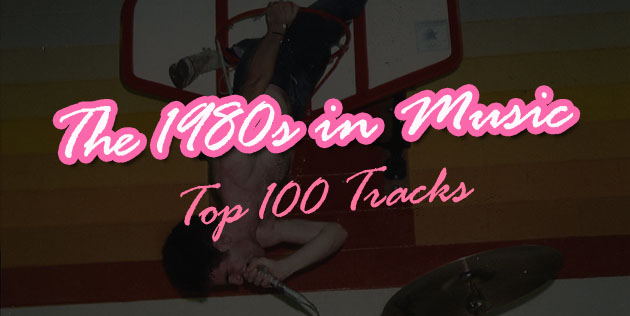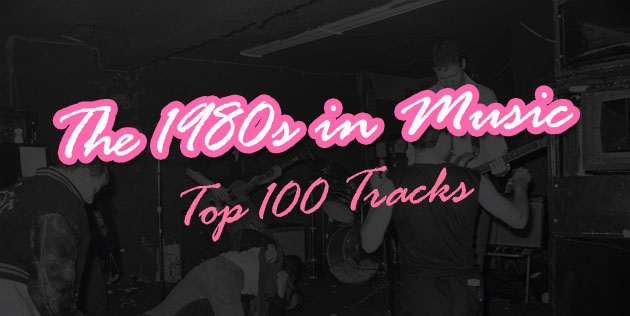

90.
Simple Minds
“Don’t You (Forget About Me)”
[A&M; 1985]
“Don’t You (Forget About Me)” is a quintessential 80s song. From the lustful-yet-family-friendly lyrics to the keyboard you have to air-play in the chorus, all brought in a package of shiny production, there is no other era that could have spawned it. The song will forever be connected with The Breakfast Club, which has only increased the level to which this song has seeped into the walls of pop culture. The song fits nicely into the story of the motley group high school kids, but it goes beyond that and expresses a self-consciousness that everyone in their adolescent years feels when they think about someone to whom they have an attraction.
Simple Minds didn’t write the song and in fact passed on it on first offering, eventually recording it almost dismissively in a mere three hours. Even after its gargantuan success they declined to put it on their next album. But two and a half decades on it’s those immortal concluding “la la la la”s that people are going to remember much clearer than anything else they recorded, and I hope by now they’ve made peace with it. If not, I hope they don’t visit karaoke bars often.
– Rob Hakimian
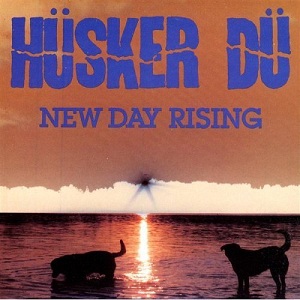
89.
Husker Du
“I Apologize”
[SST; 1985]
The work of Hüsker Dü inspired dozens of punk and pop-punk bands of the 90s, but if there’s any one Hüsker Dü song that condenses the facets that would go on to be huge it’s “I Apologize.” There are, as always, the buzz-saw guitars, but rather than being loud and abrasive and something you want to get violent to, they’re tuneful and kept under control and something you’d stand back might appreciate the melody of. The lyrics encapsulate teen boredom in its tales of staring at the walls, angst in the song’s main message of regret, and ultimately anger when Bob Mould screams on certain lines. What was lacking from all the imitators was the earnestness. When Mould shouts about the dishes not getting done you feel the frustration, but then when he subsequently calms down and apologizes for his “temper too quick” it feels like a genuine argument – even though you’re only hearing one side of it, we’ve all been there.
– Rob Hakimian
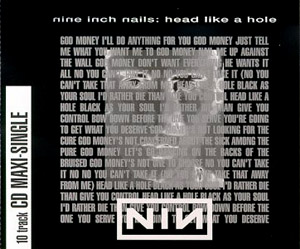
88.
Nine Inch Nails
“Head Like A Hole”
[TVT; 1989]
When Trent Reznor emerged at the tail end of the ‘80s, nothing like him had been seen before. He managed to successfully merge the grinding, pulverizing beats of the burgeoning industrial movement with some genuine pop instincts, in the process creating one of the blueprints for the next two decades of alternative rock. This opening salvo from his debut album, Pretty Hate Machine, is in many ways still his defining work. It’s Reznor’s quintessential blend of menacing synths, sticky hooks, and his unique brand of self-loathing. His rage here is directed at the corporate machine, which foreshadowed his 21st-century rebirth as an anti-record-label crusader.
– Sean Highkin
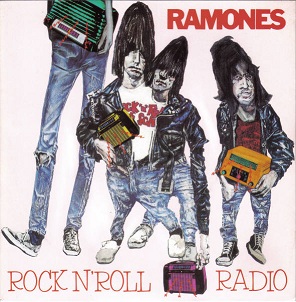
87.
The Ramones
“Do You Remember Rock ‘N’ Roll Radio”
[Sire; 1980]
I’ve had a few too many unfortunate conversations in my life with people who think Phil Spector ruined the Ramones. It was as if expanding a song to three minutes, adding some horns and organs, and make things just a tad cleaner single-handedly killed punk. This is just dumb. In 1977 the loud, fast, Ramones were exactly the kick in the nads rock needed; but by 1980 punk was already starting to eat itself, something the Ramones duly noted as Joey sings with that trademark sneer, “We need change, we need it fast / Before rock’s just part of the past/ Cause lately it all sounds the same to me.” On “Do You Remember Rock ‘n’ Roll Radio” the Ramones’ songwriting is as solid as ever and Spector’s production is, unsurprisingly, spot on, expanding on, never overshadowing, what made the Ramones such a great punk band.
– Jon Blistein
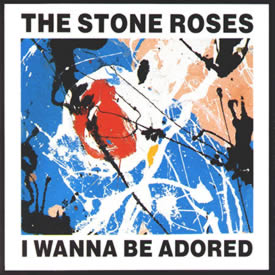
86.
The Stone Roses
“I Wanna Be Adored”
[Silvertone; 1989]
So, let’s talk about that bass line. It’s simple and haunting, infectious and frightening, hinting at what’s in store for the next five minutes as well as the rest of The Stone Roses’ debut. It creeps into audible range amid noises of steel screeching and urban chaos, slowly building like it’s approaching from the claustrophobic, humid depths of hell. Then, Ian Brown confirms our fears, confessing “I don’t have to sell my soul, he’s already in me.” The buildup really pays off in the song’s last minute, as guitarist John Squire works into a fury and Brown keeps pleading. It is a song that boils youthful rebellion and dangerously danceable longing down to one succinct refrain: “I wanna be adored.” It’s an epic beginning to what was destined to become a mythical album.
– Deanna McLafferty
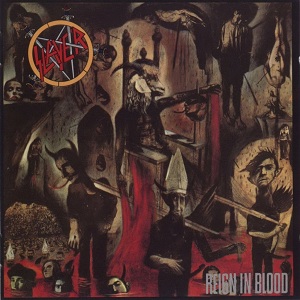
85.
Slayer
“Raining Blood”
[Def Jam; 1986]
Often cited as one of the heaviest metal albums of all time, Reign In Blood is the quintessential thrash metal album. “Raining Blood” is no exception. With the onslaught of riffs, drums and that break down at the end, it hits you in every direction. The abrasive song structure, and catchy riffs has made it both a staple in Slayer’s catalogue, and the genre itself. The song has had such a large reach that Tori Amos even covered it in 2001. “Raining Blood” is a culmination of what the album is about. From the vicious themes to the aggressive speed of the music, it’s chaos. It’s the perfect way to close out an album that many consider a classic. And that break down three minutes and thirty seconds into the song as the song slowly marches into madness is iconic. After that, the song just loses itself and descends into chaos as the albums ends with the sound of rain and thunder.
– Brent Koepp
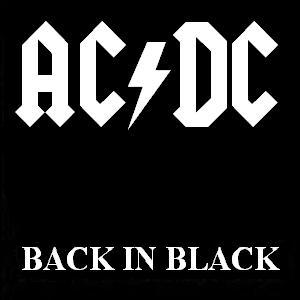
84.
AC/DC
“Back In Black”
[Albert / Atlantic; 1980]
There’s a moment in “Back In Black” where you just can’t stop yourself from thinking “WOW.” It’s that mid-section riff when everything goes crazy and Angus gets his boogie on. It’s only 20 or so seconds, but it’s so typical of AC/DC. They seem to have the wonderful ability of turning the heat up whenever they choose, thrill you, and then bring things back to the norm. It’s tantalising. The rest of “Back In Black” is the complete opposite to that one section; the song is essentially a self-assured strut, never straying from the mid-tempo beat that both drives the song along and sets up that one section and Angus Young’s lead section. Come to think of it, the song is a vehicle to showcase Angus’ talents. Other than that, it’s just a “cool” song, the kind you could drive to with the windows down/roof off and get away with wearing aviators on any given day.
– Daniel Griffiths
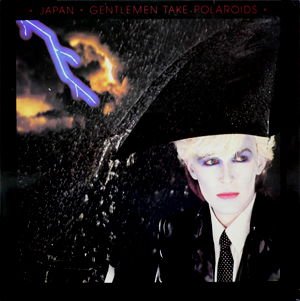
83.
Japan
“Gentlemen Take Polaroids”
[Virgin; 1980]
David Sylvian had already embraced the influence of his glam idols on Japan’s previous record, Quiet Life. But once the sprawling, sublime keyboard melody was introduced to the band’s sound on their fourth LP, the difference was strikingly obvious. The song recalls neon lights and men in white make-up, a world as futuristic as familiar — a sexy, danceable hymn to what the ‘80s would have been if it weren’t for those terrible yuppies!
– John Wohlmacher

82.
Duran Duran
“Rio”
[EMI; 1982]
Yeah, don’t even try to argue this one. Duran Duran was not just a big band in the ‘80s; in many ways, they personified the decade, and there’s no better example of that than the title track from their 1982 smash album. Rapid-fire keyboards and sunset-over-the-yacht guitars back Simon Le Bon’s ode to the girl who “dances on the sand just like that river twisting through a dusty land.” And then there’s a sax solo, the drum kicks into double-time, and you can practically feel yourself slipping on an imaginary white blazer in all its cheesy-retro glory. What makes this particular Duran Duran song (and album) so memorable is that it uses absolutely indelible pop songwriting to transcend its own era; Le Bon and company might have personified the ‘80s, but their music is far more timeless.
– Josh Becker
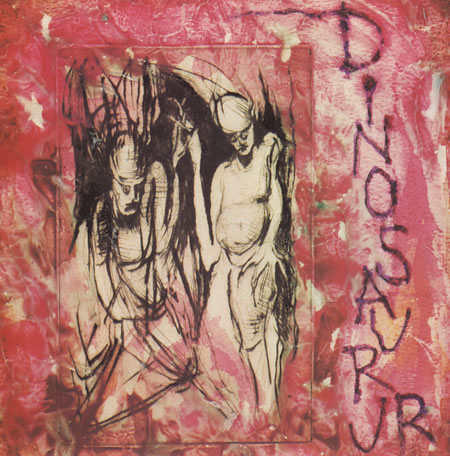
81.
Dinosaur Jr.
“Freak Scene”
[SST; 1988]
Given the fact that majority of Dinosaur Jr.’s output saw the light of day in the next decade, it’s easy to forget that many of their iconic songs saw release in the ‘80s. “Freak Scene” is certainly a great example of their late ‘80s output; a typically laconic vocal from J Mascis and a punishing guitar line punctuated by an acoustic driven chorus. It’s just one of the catchiest indie rock songs out there, and those builds into the verses are dynamic moments that would be aped for years to come. Then there’s the prototypical J guitar solo. Sometimes your ears need a bit of guitar-based music to do some palate cleansing, and the riffs here will certainly be enough to fulfill that need.
– Colin Joyce

